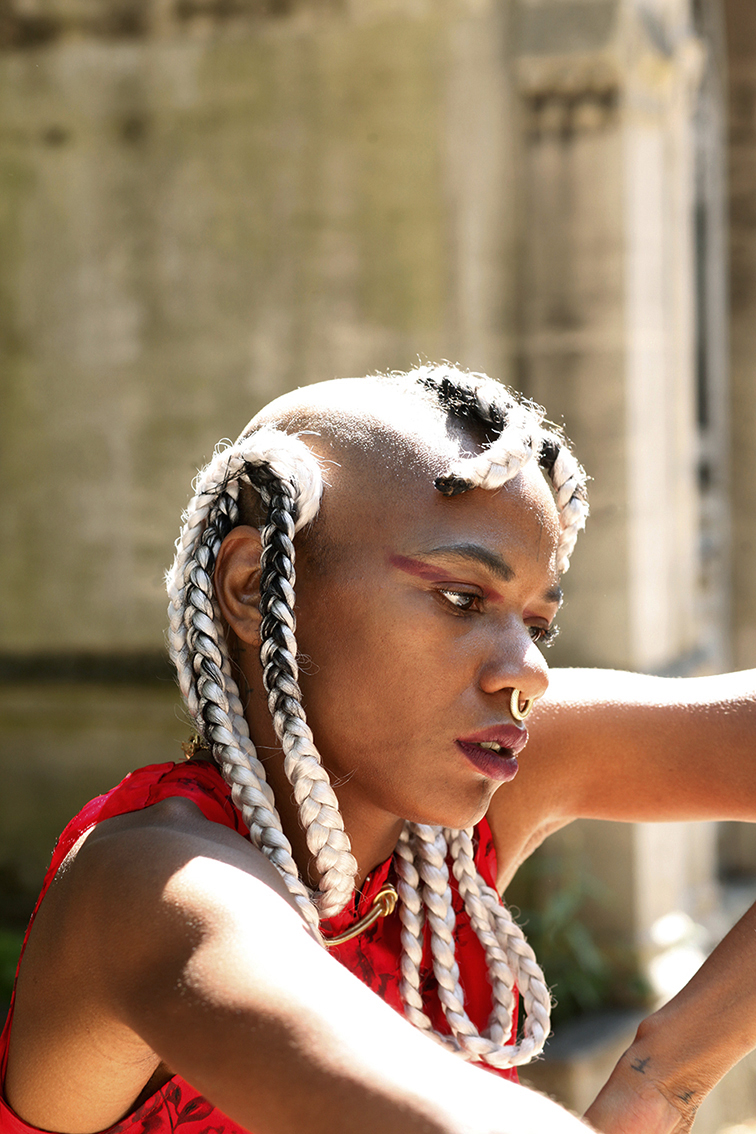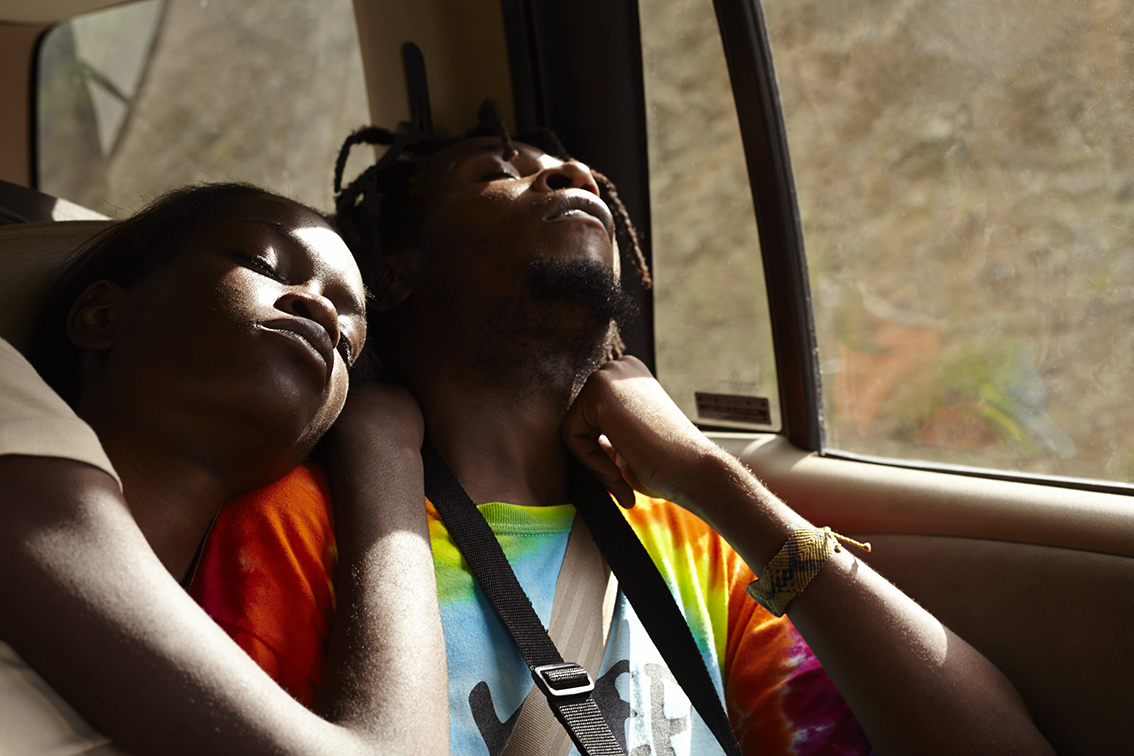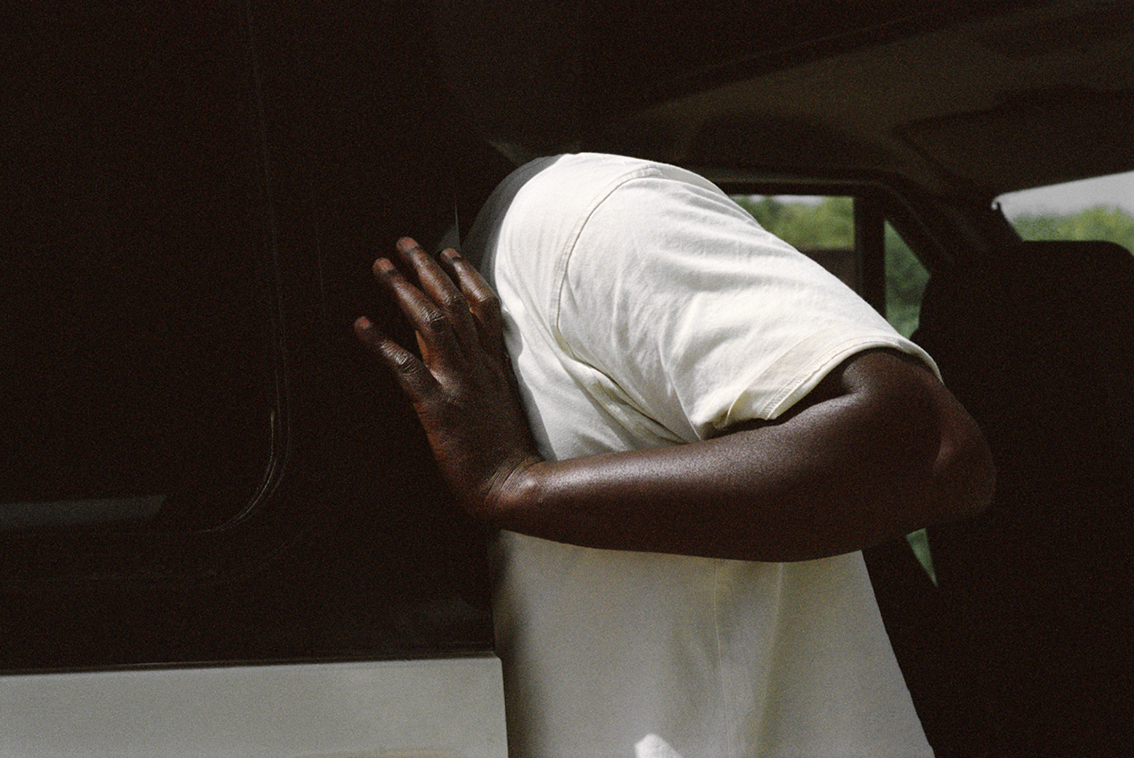Henry Roy
When did you first become interested in photography? Was there a moment when you knew it was a career path for you?
My first contact with photography happened as if by magic. A friend invited me to assist, in his personal lab, in the development of a photo. I had never heard of photography, nor had I had any idea what I was going to see. When the photo appeared in the developer bath, it must have made a strong impression on me, because I immediately decided to make it my profession. I was only 18 years old. I consider this experience as an emotional shock that guided my destiny.
![]()
Your work encompasses a wide range of street photography and candid portraits. Do you view your work as part of a larger overall narrative?
I claim not to get attached to a predefined subject such as portrait, landscape, still life or street photography. It doesn't really make sense to me because my work deals with something else entirely. I try to capture a particular intensity. I see photography as a magical medium. So my quest is very independent. It's a question of isolating, in the fabric of reality, images that have a symbolic power and an energetic charge that touches me. What I try to transmit is the invisible. My images, often enigmatic, are not linked to any precise system of reference. They generate their own codes. This is what gives them a power of suggestion. It is a question of exploring the modified state of consciousness in which my practice of photography plunges me. My images are thus vibratory representations, pure products of my subconscious. They denounce the instability of reality and the relativity of vision. In this sense, they are related to the voodoo culture of my origins.
![]()
Do you have a favorite style or way of making images (candid, documentary, etc.)?
It is essentially sensory (the mind only really intervenes during editing). I try to explore all the dimensions of my life. According to me, an image can arise at any time. This requires constant vigilance. I practice a form of diarism, photographing the unfolding of my daily life with uninterrupted constancy. Although few images, in the end, hold my attention. Light and atmosphere, especially different times of day with the interaction of the sun, play a role in your images.
![]()
Do you find that you're drawn to a particular type of atmosphere or interaction with the outdoors when photographing your subjects?
Indeed, sunlight is essential for me. The relationship that my art has with this star is radical. I would say that I voluntarily submit myself to its influence. Avoiding flashes and other additional artificial light, I am constantly aware of the location of the sun, whose position determines my shots. And even my subjects. I particularly like the hours when its presence and its shadows give reality a dreamlike dimension. His luminous palette is, by far, the one I prefer. This is why I qualify my work as animist (in the sense that I submit to the forces of nature).
Are there particular themes or ideas that you're particularly interested in pursuing?
Humans, plants, minerals and animals, but also earth and water are certainly my favorite themes. I also like sleepers a lot.
![]()
What is your favorite thing about traveling extensively for work, finding new locations to photograph?
I have, indeed, traveled a lot in the past. That has become less relevant today. What I particularly like about traveling is the gap between a place and another, whether it is jet lag or cultural. Being immersed in an unknown context causes a loss of reference that stimulates my creativity. Jetlag is, for me, a form of trance. I like the vision that emerges from disorientation. I try to travel without preconceived ideas, carefully avoiding exoticism and clichés. The geographical location of a photo is less important to me than what it expresses. I am therefore constantly looking for something that I consider essential, something that echoes my interiority, whatever the country.
Is there a specific experience or photo shoot that surprised you, taught you something unexpected, or has stuck with you over time? Why?
There are so many of them that it is difficult for me to isolate one in particular. I just want each shot to surprise and move me. Most of the time, when I select a photo, it is because its capture has produced a powerful effect on me. The shooting acts like a ritual.
![]()
Is there anything else you'd like to add?
In my opinion, photography should have a capacity of action on reality. Not from the ethnocentric "humanist" angle that marked the whole of the 20th century, but in a more subtle and open way. Art and photography that are not engaged in the enormous stakes of today's world seem meaningless to me. I have been trying, for several years now, to bring my share to the paradigm shift that humanity is facing. To do so, I summon the ancestral spiritual forces that attach me to Haitian, and therefore African culture. I am also very attached to what connects us all, to what we, humans, share in common. To open our consciousness, to come out of the hypnosis in which we are immersed in order to access other dimensions of the being and the living. These are my main motivations. I don't really care about the medium. I use the text more and more. It seems indispensable to me to deconstruct the existing codes to create new ones, capable of improving our reading of the world.
⬿Back to exhibition
My first contact with photography happened as if by magic. A friend invited me to assist, in his personal lab, in the development of a photo. I had never heard of photography, nor had I had any idea what I was going to see. When the photo appeared in the developer bath, it must have made a strong impression on me, because I immediately decided to make it my profession. I was only 18 years old. I consider this experience as an emotional shock that guided my destiny.

Your work encompasses a wide range of street photography and candid portraits. Do you view your work as part of a larger overall narrative?
I claim not to get attached to a predefined subject such as portrait, landscape, still life or street photography. It doesn't really make sense to me because my work deals with something else entirely. I try to capture a particular intensity. I see photography as a magical medium. So my quest is very independent. It's a question of isolating, in the fabric of reality, images that have a symbolic power and an energetic charge that touches me. What I try to transmit is the invisible. My images, often enigmatic, are not linked to any precise system of reference. They generate their own codes. This is what gives them a power of suggestion. It is a question of exploring the modified state of consciousness in which my practice of photography plunges me. My images are thus vibratory representations, pure products of my subconscious. They denounce the instability of reality and the relativity of vision. In this sense, they are related to the voodoo culture of my origins.

Do you have a favorite style or way of making images (candid, documentary, etc.)?
It is essentially sensory (the mind only really intervenes during editing). I try to explore all the dimensions of my life. According to me, an image can arise at any time. This requires constant vigilance. I practice a form of diarism, photographing the unfolding of my daily life with uninterrupted constancy. Although few images, in the end, hold my attention. Light and atmosphere, especially different times of day with the interaction of the sun, play a role in your images.

Do you find that you're drawn to a particular type of atmosphere or interaction with the outdoors when photographing your subjects?
Indeed, sunlight is essential for me. The relationship that my art has with this star is radical. I would say that I voluntarily submit myself to its influence. Avoiding flashes and other additional artificial light, I am constantly aware of the location of the sun, whose position determines my shots. And even my subjects. I particularly like the hours when its presence and its shadows give reality a dreamlike dimension. His luminous palette is, by far, the one I prefer. This is why I qualify my work as animist (in the sense that I submit to the forces of nature).
Are there particular themes or ideas that you're particularly interested in pursuing?
Humans, plants, minerals and animals, but also earth and water are certainly my favorite themes. I also like sleepers a lot.

What is your favorite thing about traveling extensively for work, finding new locations to photograph?
I have, indeed, traveled a lot in the past. That has become less relevant today. What I particularly like about traveling is the gap between a place and another, whether it is jet lag or cultural. Being immersed in an unknown context causes a loss of reference that stimulates my creativity. Jetlag is, for me, a form of trance. I like the vision that emerges from disorientation. I try to travel without preconceived ideas, carefully avoiding exoticism and clichés. The geographical location of a photo is less important to me than what it expresses. I am therefore constantly looking for something that I consider essential, something that echoes my interiority, whatever the country.
Is there a specific experience or photo shoot that surprised you, taught you something unexpected, or has stuck with you over time? Why?
There are so many of them that it is difficult for me to isolate one in particular. I just want each shot to surprise and move me. Most of the time, when I select a photo, it is because its capture has produced a powerful effect on me. The shooting acts like a ritual.

Is there anything else you'd like to add?
In my opinion, photography should have a capacity of action on reality. Not from the ethnocentric "humanist" angle that marked the whole of the 20th century, but in a more subtle and open way. Art and photography that are not engaged in the enormous stakes of today's world seem meaningless to me. I have been trying, for several years now, to bring my share to the paradigm shift that humanity is facing. To do so, I summon the ancestral spiritual forces that attach me to Haitian, and therefore African culture. I am also very attached to what connects us all, to what we, humans, share in common. To open our consciousness, to come out of the hypnosis in which we are immersed in order to access other dimensions of the being and the living. These are my main motivations. I don't really care about the medium. I use the text more and more. It seems indispensable to me to deconstruct the existing codes to create new ones, capable of improving our reading of the world.